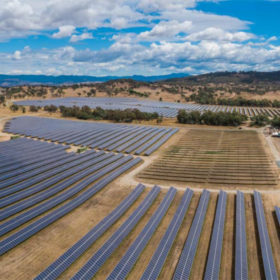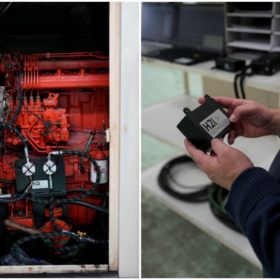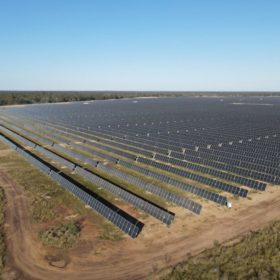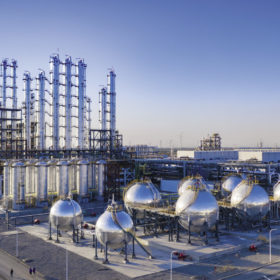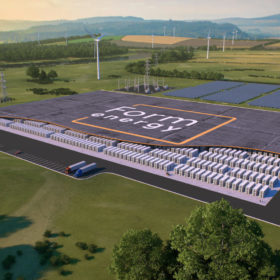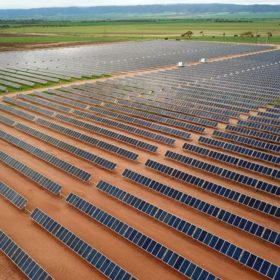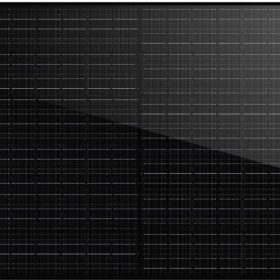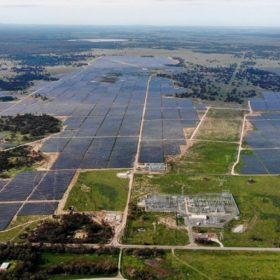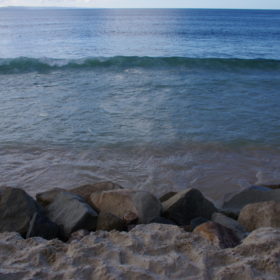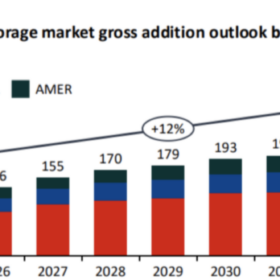CleanPeak Energy acquires profitable Canberra solar farm
CleanPeak Energy, who have until now specialised in the C&I segment, have acquired the 13 MW Mugga Lane Solar Park in Canberra. CleanPeak reportedly bought the solar farm for between $30 million (USD 21 million) and $40 million, after it was placed into voluntary administration following a loan dispute.
Systems injecting hydrogen into diesel engines manufactured in Victoria
A Victorian-based startup which claims to have developed a hydrogen enhancement kit that injects hydrogen into existing diesel engines to reduce diesel use, has begun the production of 10 commercial-ready systems. It will do field testing with the systems on sites of potential customers.
World’s biggest solar-plus-storage project goes up for sale
Sun Cable, the company behind the world’s largest solar and storage project, has officially gone up for sale after entering voluntary administration in January. Its administrator, FTI Consulting, is seeking binding offers of acquisition or recapitalisation by the end of April with a deal to be finalised by May’s end.
Missteps, monster solar farms and hangovers: solar’s 2022 in review
Last year was a tricky one for solar, with each segment from residential to commercial to utility behaving quite differently. The industry trends have been laid out in Sunwiz’s latest Australian PV Report and pv magazine Australia takes a dive into what happened and what there is to learn.
China mulling restrictions on polysilicon, wafer exports
The Chinese government is considering the introduction of export restrictions on solar wafers, black silicon, and silicon casting equipment. It has launched a public consultation process on the proposed measures.
Multi-day iron-air batteries to be hosted in former US coal sites
Form Energy will install two 10 MW / 1,000 MWh batteries on the sites of Xcel Energy’s former coal-fired plants.
MPower acquires Faraday solar project in Victoria as it grows its mid-scale play
Australian renewable energy developer MPower has acquired the shovel-ready 5 MW Faraday solar project in Victoria. The purchase is part of the company’s broad mid-scale strategy.
Longi increases product warranty to 25 years
Chinese manufacturer Longi has increased the product warranty for its Hi-MO 5m modules to 25 years in Australia and New Zealand. The company says the ten year boost comes “after identifying how important it has become for consumers to have full confidence and peace of mind at the time of choosing their solar system components.”
C&I customers to offtake 25% of generation from Australia’s biggest solar farm
Commercial and industrial energy retailer SmartestEnergy Australia have signed a power purchasing agreement with Octopus Australia to offtake 25% of generation from its Darlington Point Solar Farm in New South Wales.
Green hydrogen straight from the ocean: Adelaide researchers crack new method
Researchers from the University of Adelaide, along with international partners, have successfully used seawater with no pre-treatment to produce green hydrogen. The team did this by introducing an acid layer over the catalysts in situ. “We have split natural seawater into oxygen and hydrogen with nearly 100% efficiency… using a non-precious and cheap catalyst in a commercial electrolyser,” University of Adelaide’s Professor Shizhang Qiao said.
